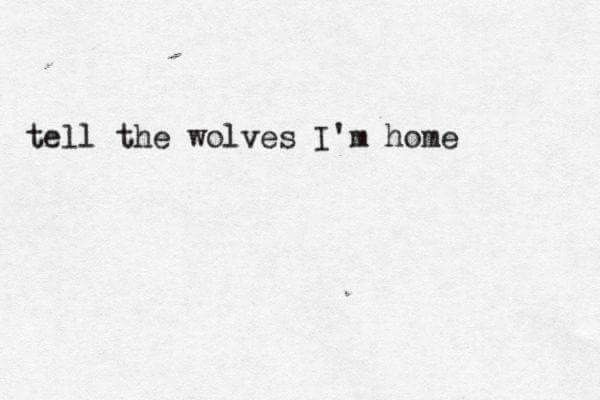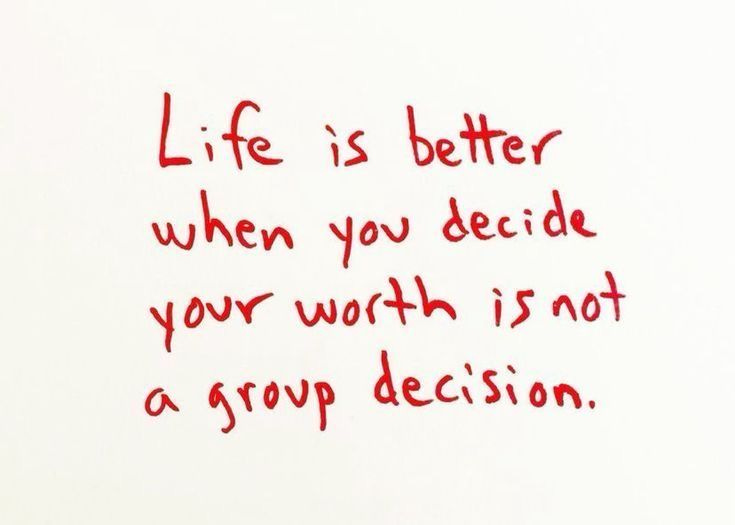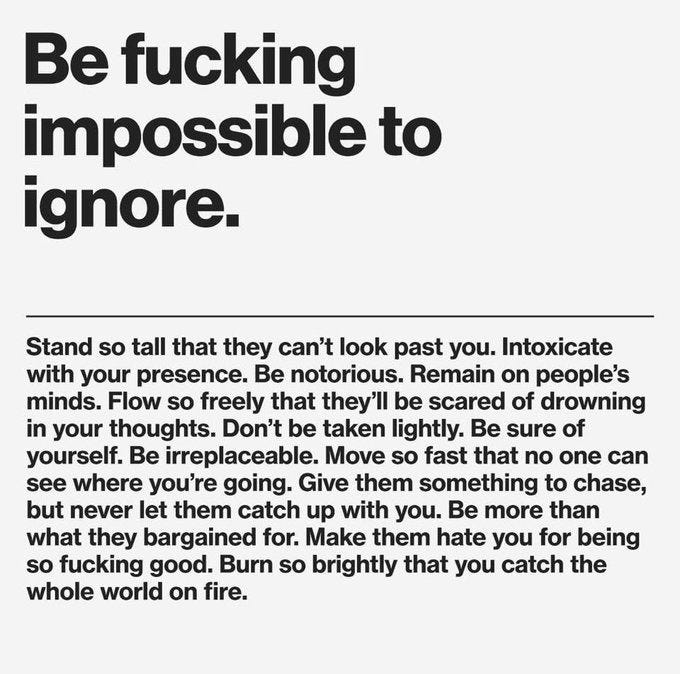give yourself permission not to care (what people think about you)
thoughts on harnessing hate and ridicule for creative output
There's a thought experiment I keep returning to, one that feels too simple to be useful but somehow isn't. I try to think of a single person—any person—who has created something of lasting value and been universally beloved for it. Not just tolerated, not just eventually appreciated after they were safely dead, but genuinely loved by everyone who encountered their work while they were alive to feel it.
I can't come up with anyone.
Van Gogh sold one painting in his lifetime. Beethoven's late quartets were dismissed as the confused ramblings of a deaf man. Emily Dickinson published fewer than a dozen poems before her death, and those anonymously. Even figures we now consider uncontroversial—Fred Rogers, for instance—had critics who thought his gentleness was making children soft, unprepared for the world's inevitable cruelties.
The more I think about it, the more absurd our expectation of universal approval becomes. We live in a world where people can't agree on the color of a dress in a photograph, yet somehow, when we create something—when we pour our inner landscape into external form—we expect consensus. We expect strangers with entirely different histories, values, mental models, and aesthetic sensibilities to not just understand our work but to love it.
It's like expecting everyone to have the same favorite song. Or the same favorite memory. Or the same relationship with their mother.
I think there's something almost violent about this demand for universal approval, something that asks us to sand down every rough edge, to eliminate every aspect of ourselves that might make someone else uncomfortable. It's a kind of creative suicide by committee, where the final product bears so little resemblance to the original impulse that it satisfies no one—not even its creator.
the paradox of visibility —
Last month, one of my Substack essays took off in ways I never expected. The gratitude was real—still is. But alongside the readers who resonated with my words came another crowd: the purists, the gatekeepers, the people who took personal offense at my choice to embrace AI tools in my creative processes. They weren't just disagreeing with my methods; they were denying the validity of the work itself.
What struck me wasn't just the criticism—I've been thinking and writing about ideas my entire adult life, interrogating my own beliefs, reassessing my values, turning my worldview inside out to see if it holds up to scrutiny. This is who I am. It's the work I do on myself, constantly, the way other people might go to the gym or tend a garden. So when strangers decided that my use of certain tools invalidated everything I am, everything I think, everything I've spent decades cultivating about how I see the world... well, it felt less like legitimate critique and more like having someone tell you they know your inner world better than you do.
The notification count kept climbing. Views, shares, comments—all the metrics that supposedly spell success. I thought I understood what virality felt like, having navigated the chaotic waters of social media for years. But this was different. This wasn't the throwaway irreverence of a platform built for hot takes and shitposts. This was Substack—the place where I'd been turning my thoughts inside out, sharing the tender machinery of my mind with strangers who'd chosen to sit with my ideas long enough to actually read them.
Admittedly, when the hate started rolling in, it didn't bounce off like it usually does. These weren't random drive-by comments on disposable content. These were people rejecting not just what I'd made, but seemingly the very core of how I think, how I create, how I've chosen to exist as a person who makes things in the world.
These strangers began psychoanalyzing me based on a single post. Which, when you step back and look at it, is quite wild. People who had never read my work before, never witnessed the years of wrestling with ideas, never seen the care I take in examining my own motivations—they felt qualified to diagnose my creative process, my character, my worthiness as a thinker. All from one essay.
Some of them even started offering unsolicited advice on how to fix me. "Your work would be stronger if you did X," they'd say, as if I'd asked for their consultation. "More people would like you if you just..." as if popularity were the point of thinking out loud. A few even dangled the promise of their paid subscriptions like carrots—"I was going to subscribe until I saw you said this thing I didn't like." The implication being that I could buy their approval, their money, their validation, if only I'd reshape myself into something more palatable.
I keep returning to this moment, this offer to trade pieces of myself for acceptance. Because the person I am—the one who thinks these thoughts, who asks these questions, who chooses these tools—is someone I've grown to like, even cherish. Not because I'm perfect, but because I'm mine. And no amount of money, no number of subscribers, no chorus of approval will ever be worth surrendering that. Ever.
the weight of judgement —
I've been sitting with this feeling for weeks now, trying to understand why it landed so differently than I expected. There's something about having your deepest thoughts dissected by strangers that creates a particular kind of vertigo. It's not just criticism—I've weathered plenty of that, like I said. It's the way criticism of your work becomes criticism of your mind, and then, somehow, criticism of your right to think at all.
Last week I wrote about imposter syndrome being the price of showing up. At the time, I thought I was exploring some abstract concept about creative courage. Now I realize I was actually grappling with this exact moment—this strange aftermath of visibility where other people's voices start to drown out your own. The piece was my way of working through something I didn't yet fully understand I was experiencing.
There's a strange intimacy to having strangers rifle through your thoughts like they're sorting through your sock drawer. These weren't just people disagreeing with my conclusions; they were people who seemed personally offended by the way my mind works. As if the very architecture of my thinking was somehow an affront to their sensibilities.
I found myself doing something I haven't done in years: second-guessing not just what I'd written, but how I'd arrived at writing it. Was I really thinking clearly? Was my process actually valid? Had I been fooling myself about the quality of my own thoughts? It's a peculiar form of gaslighting, this external chorus that makes you question your internal compass.
The irony wasn't lost on me that in an essay about creative tools and artistic authenticity, I was now questioning the authenticity of my own creative process. The critics had managed to make me doubt not just my work, but my worthiness to do the work at all. Which is, I suppose, exactly what they intended.
connecting the dots —
This isn't the first time I've found myself circling these questions—there's something compulsive about examining the places where creativity meets resistance, where the act of making something collides with the world's opinion of what you've made.







